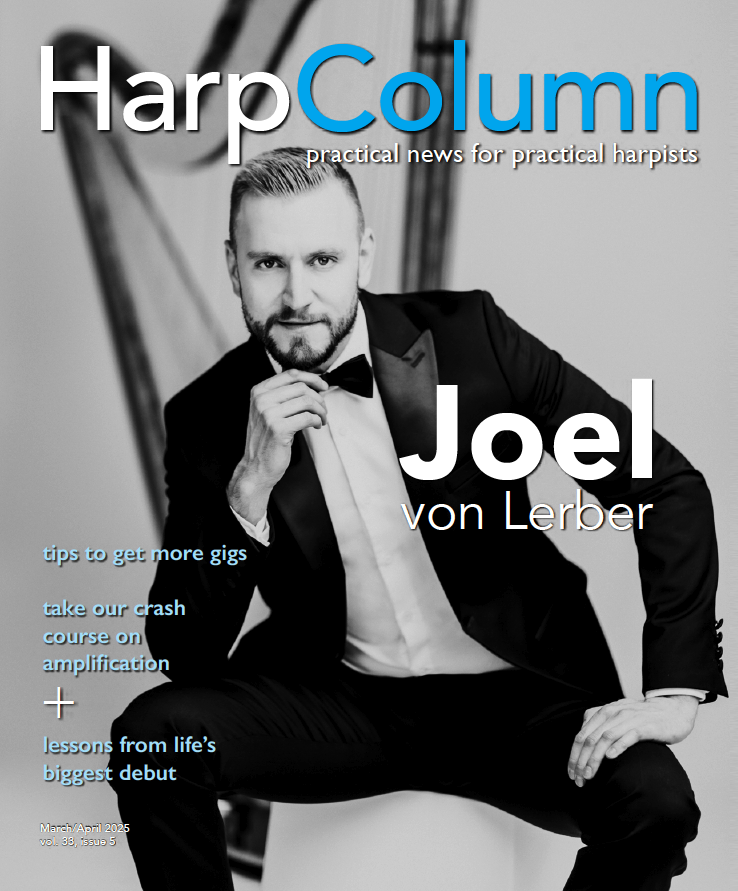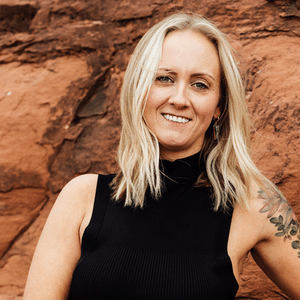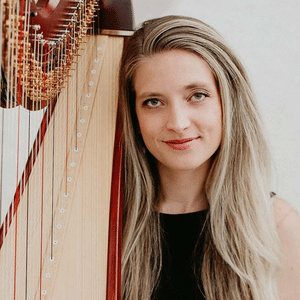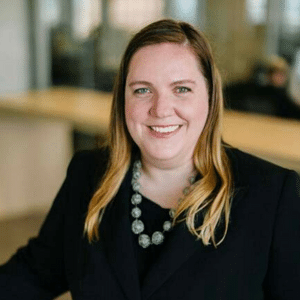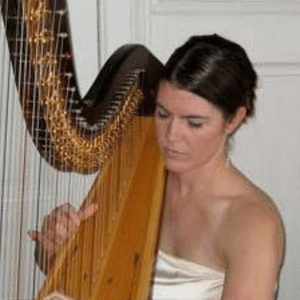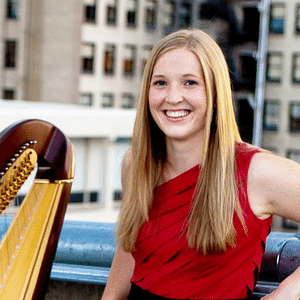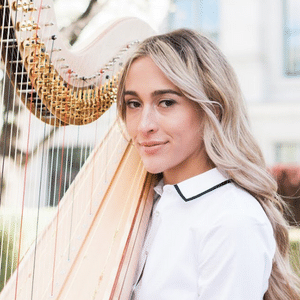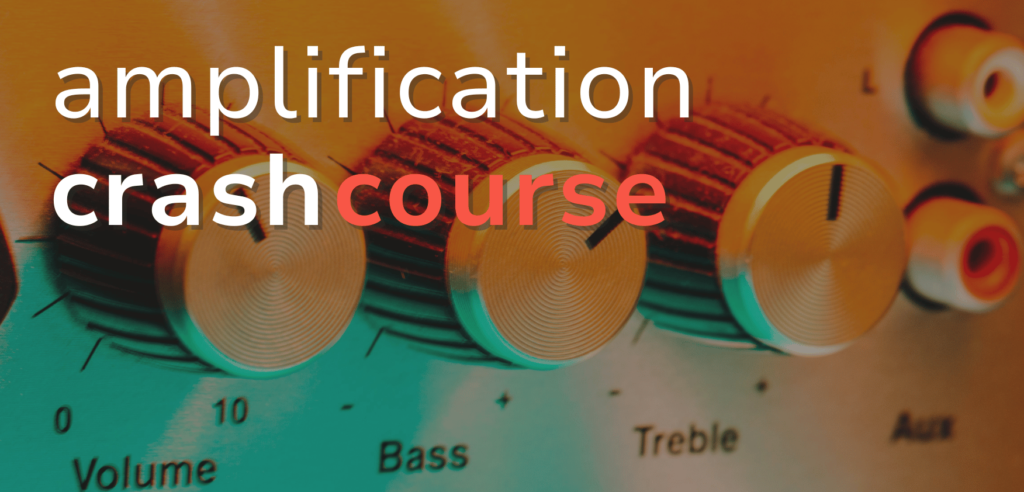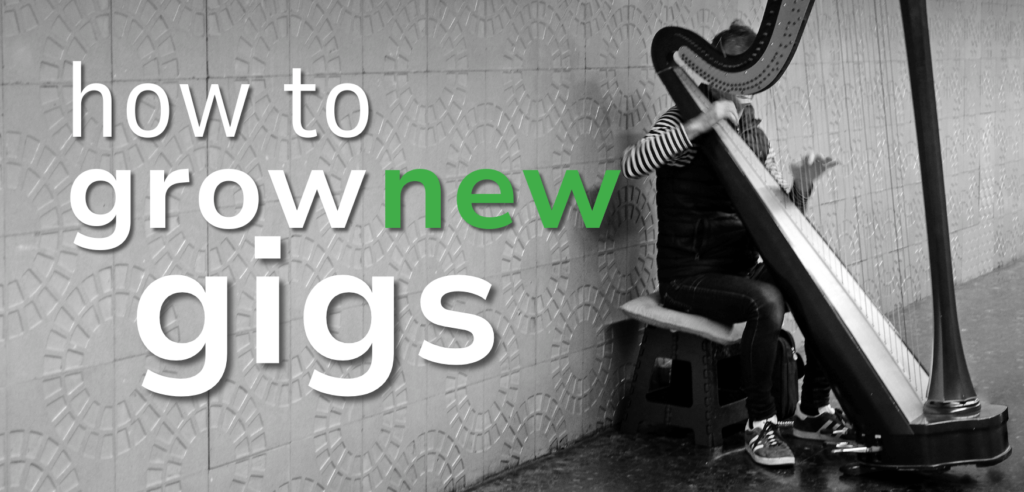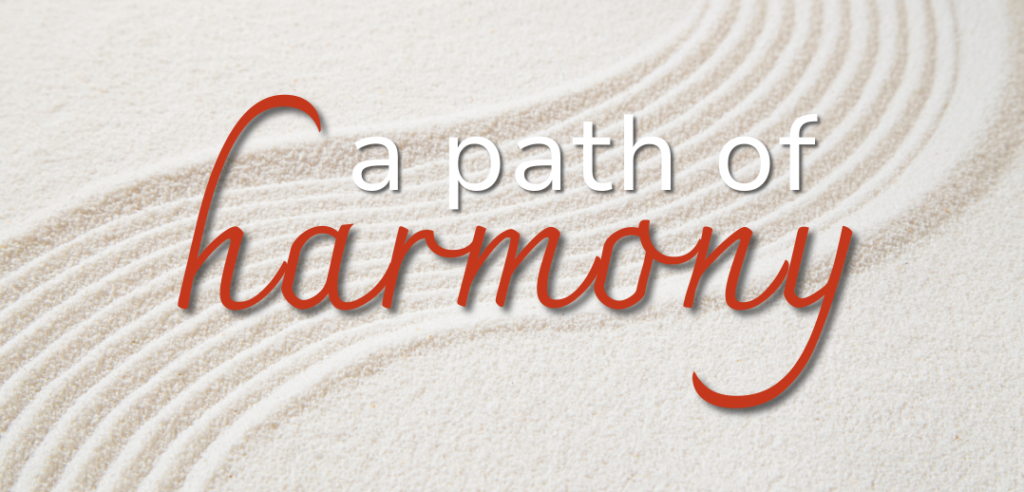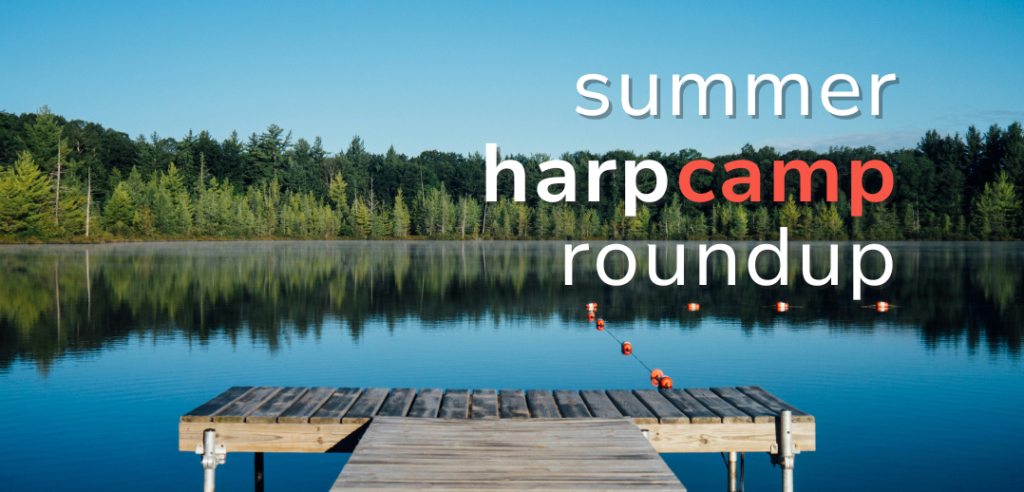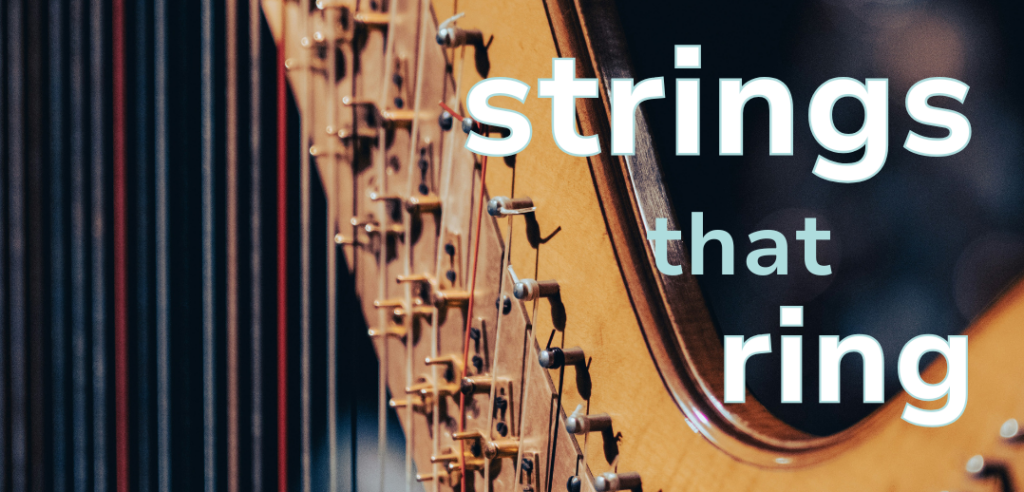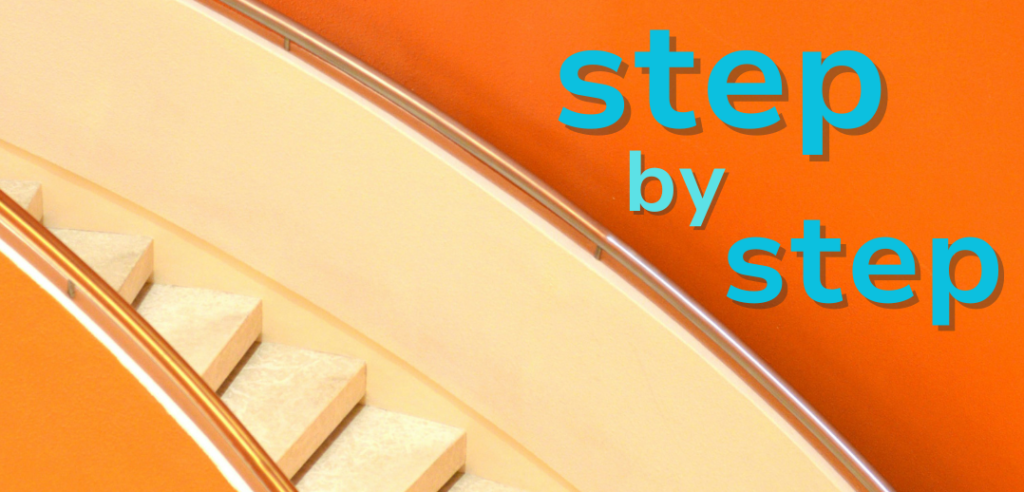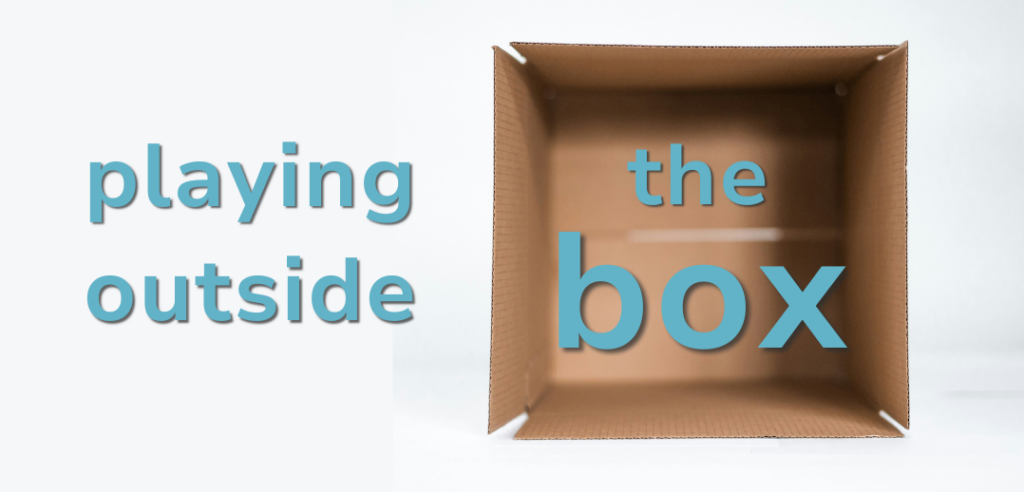In the process of navigating my career shift from music to law (see more about that in my Sounding Board article), I have discovered a surprising number of other harpists who pursued different careers after studying the harp in college. As I thought about these harpists and all the different ways of connecting and disconnecting with music as a career, I couldn’t help but wonder: Why do harpists change courses? How do they choose their next career? Do the skills we learn as harpists translate to new and unrelated roles? And, selfishly, how can I engage with music in a meaningful way, now that the harp is (shudder) more of a pastime than a profession for me? These are the questions I seek to address in this article, with insights drawn from conversations with five other women who, after completing college degrees in music and working as harpists, have found success in other fields.
Why harp?
I first wanted to understand what led these harpists to pursue music so seriously in the first place. Music performance is not an easy undergraduate major. Given the fact that they now have careers in unrelated fields, I was interested in what inspired them to choose music as their course of study in college. A salient point arose: who really knows at age 18 what they want to do for the rest of their life? Of course, choosing a major doesn’t bind you to a future career. However, doesn’t it seem that the time and intensity required for a music performance degree set this major apart from others? Someone ambivalent about getting a performance degree is not likely to tolerate the demands of the curriculum, especially given that it requires foregoing much of the traditional college social life. Given that level of dedication, the reason for the initial choice in light of an eventual change in course is quite interesting. Of course all of the interviewees and I loved the harp and were good at it, but I was curious about what other factors might have been at play.
I knew that keeping my harp career would require me to be very intentional throughout law school, and I really went in with that mentality.
—Maren Laurence
For some, the choice of major was clear not only because of a natural aptitude for the instrument, but also because their talent led to college scholarships. In addition to funding towards both her bachelor’s and master’s degrees, majoring in harp at the University of Arizona gave Kate Zurcher the opportunity to travel the world as a member of Dr. Carrol McLaughlin’s Harp Fusion ensemble. When I asked Zurcher whether she regrets choosing a major unrelated to her current career as a corporate attorney, she cheerfully reported no regrets. “Looking back,” she said, “college was a golden period of my life. I was able to travel, and music was a balm for me to work through difficult emotions and learn about myself.” In this same vein, Zurcher and I discussed how diligently studying an instrument at a high level dovetails quite nicely with the overall “task” of the undergraduate experience more generally—to grow into your adult self. In a harp performance major, you learn to be accountable for your own progress, balance your schedule in order to fit in practicing, meet the expectations of a new private teacher, collaborate with others in orchestral and chamber groups, and hopefully use music to self-regulate in a healthy way during what can be a time of emotional upheaval. In this light, it is an ideal (albeit niche) major, whatever your ultimate career path.
In contrast, Natalie Ruotsinoja Durk always knew she wanted a career in a field other than music, and organically shifted towards the business world while still in college. After completing an undergrad degree in music at the University of Michigan, she went on to earn a master’s of human resources and industrial relations, and currently works in employee compensation and benefits for a major insurer. She chose to study harp in college simply because she loved it, was good at it, and because she was curious and dedicated enough to stick it out. She says she has no regrets about majoring in harp and no regrets about the change from music to business.
Why change?
Next I wanted to understand the reasons behind switching careers (or, for some, pursuing other careers in addition to harp). First, it is interesting to reflect on the concept of readiness to switch. Personally, I had always thought about law school, probably as a result of being a stubborn kid. But even though I had a love-hate relationship with performing and was tempted by the idea of law school, at the end of undergrad I just didn’t feel ready to stop studying the harp full-time. I wasn’t sold on being a professional harpist, but I definitely wasn’t ready to give up being a harp student. Speaking with Maren Laurence, who also completed her master’s in harp before starting law school, I was surprised to hear that her experience finding the “right time” to switch gears was similarly based on the intuition that her harp education was not yet finished.
After completing her bachelor’s degree at the University of Michigan, Laurence knew she wanted to go to law school eventually, but first earned her master’s at the Royal Academy of Music. While in the U.K., she job-shadowed for a time at a trademark law firm and felt inspired and ready to make the long-anticipated move to law. However, Laurence was and is determined not to leave her harp career behind. All through law school and even now as an associate, she has consciously made time to continue teaching and performing. “It is important to me to have two careers, rather than to have changed careers,” she says. “I knew that keeping my harp career would require me to be very intentional throughout law school, and I really went in with that mentality.”
For others, a second career was unanticipated—even unforeseeable—during school. After completing both her bachelor’s and master’s in harp performance at Eastman, Missy Dunne landed a coveted position as harpist in the United States Army Field Band and headed to basic training. Dunne enjoyed performing and touring with the band for 10 years, but eventually felt uninspired in the position. “Playing in the band was a little bit like [the movie] Groundhog Day,” she said. “It meant performing the same music, and because it’s a band ensemble, I couldn’t put together something like Ravel’s Introduction and Allegro, or other chamber music that I love.” Ultimately, Dunne concluded that music and military “are like oil and water.”
She wasn’t enjoying her work, but Dunne was halfway through a 20-year Army contract with the prospect of a nice retirement package on the other side. Although it is difficult to transfer from one military occupational specialty to another, Dunne started exploring other options that would allow her to step away from the band but stay in the Army for the duration of her contract. During a briefing about Army intelligence, Dunne learned about the Joint Military Attaché School, a training program which leads to work with the Army’s Defense Attaché Service. The application was open to all Army personnel (even musicians), but Dunne encountered significant opposition to making such a drastic change. Despite the opposition, Dunne dove in head first. Within a year of starting at the Joint Military Attaché School, she was working as a diplomat in Moscow with the Defense Attaché Service. She was one of two people in the last 23 years to leave the Field Band and stay in the Army.
Of her many designations, Dunne jokes, she is also proud to be able to say she was subsequently kicked out of Russia! Two years into her time in Moscow, two Russian citizens were poisoned in the U.K., and, as a result of a series of tit-for-tat personnel expulsions by the U.K., Russia, and the U.S., she was expelled and had to leave the country within a week. She spent the rest of her contract time in Canada and retired in 2020 without the ceremony one would expect from the end of a 20-year military career due to the pandemic. Dunne retired to Virginia, where she is now working in a new and exciting government contract position, enjoying homemaking with her husband, and eagerly waiting the delayed arrival of her forever harp, a Lyon & Healy Style 23 bronze.
It wouldn’t be a discussion about reasons for leaving the music industry without mentioning money. I remember once listening to someone bemoan the fact that the advent of the internet had killed her dream of being a print journalist, and I thought, try being a classical musician! There is a certain discomfort in discussing money as a reason to leave, but here is the truth: we all deserve to be compensated fairly for our work, and in music this can unfortunately be more of a lofty goal than a baseline expectation. Sticking it out when your work is not valued can be demoralizing.
There is also the fact that it is expensive both to become and to bea harpist. The instrument is expensive, the strings are expensive, lessons and degrees and summer camps are expensive, and the list goes on. Even if you can afford the barrier to entry—an instrument and lessons—keeping up a professional-quality instrument can price some out of the field.
Once you have secured the instrument and the education, it still takes time to build a book of business, and during that time there are bills to pay. The ability to be both patient and risk-tolerant may be an inherent talent for some, but it is also very difficult to sustain without some outside source of funding. I discussed this with Adrienne Knauer. She took an office job at a realty group when she first moved from Philadelphia to Phoenix and needed income as she built up her harp career in a new market. She quickly learned that a nine-to-five job neither suited her personality nor allowed time for her to flourish musically. However, while at the realty group she discovered that she could become a Realtor herself and, as long as she sold a certain number of houses a year, make the same amount she was bringing in from her office job while having the flexibility she needed in order to build up her music career.
Knauer discussed the double-edged sword of working for yourself—especially working for yourself in two different jobs. “Working as both a harpist and a Realtor means that I have no time off, especially on weekends,” she says. “But I am a ‘make-hay-while-the-sun-shines’ kind of person, and I make it work.” Knauer’s independent, entrepreneurial, can-do attitude is infectious. As I spoke with her I thought, there are people (read: me) who complain about not getting their piece of the pie, and there are people who make more pie. Knauer certainly falls in the latter category. Dissatisfied with the traditional mindset that being an orchestral harpist is the only noble performance career and that playing for events was somehow lower status, Knauer has recontextualized what it means to be an event musician. Maybe you’ve seen her course where she coaches other harpists on how to build their own gigging empire, or caught some videos on Instagram of her rocking out on dance floors with an electric harp strapped to her chest. Oh, and that little electric harp that helped differentiate her as an event harpist? Knauer let me know it was funded all by her real estate career.
Repurposing music skills
Next I wanted to know if and how the skills we learn as harpists translate to other fields. Everyone I talked to mentioned assertiveness at the top of their list of translatable skills. Being a gigging harpist takes a lot of assertiveness, and as Ruotsinoja Durk put it, “The ability to advocate for yourself is very helpful in corporate America.”
When I was about 12, I was hired to play harp as a background actor on the set of an independent film. I had negotiated a price with the director ahead of time (a skill in itself), and agreed that I would collect payment on site. After the shoot, I found him and asked to be paid, at which point he got really squirrely and said that all the musicians would actually get checks in the mail, because payment had to go through some LLC. I don’t remember exactly what I said, but it was something to the tune of “not good enough.” He responded, “What? Do you want me to pay you cash out of my own wallet here?” “That works!” I said. I guess you could say that was my first salary discussion.
So much of being a gigging harpist is setting boundaries, while also making sure the client is happy. No, I will not play in exchange for brownies. No, your child cannot touch the harp. No, I will not play in a skimpy costume for a private house party (another story for another article). Being assertive and setting boundaries are awesome skills to walk away with.
We also gain business and organizational skills as musicians. Ruotsinoja Durk points out, “As a freelance musician you are the marketing, sales, finance, and human resources department of your own company.” This ability to compartmentalize, multitask, and adapt to wearing multiple hats is an invaluable career skill. Knauer talks about this in the context of her situation, where she is keeping straight not just one but two careers where she works for herself and necessarily plays a lot of different roles. To work so hard and to spread that work over disparate roles takes a lot of energy and a lot of practice.
Harpists can learn organizational skills even if they don’t major and work in music long-term. My childhood teacher Julie Gaisford Keyes was very business-minded and taught me as a young kid not only how to play the harp but also how to set goals; organize my schedule to include school, practicing, and other activities; build a resume; arrange a gig book; quote a rate; and on and on. In addition to the well-documented benefits of studying music for things like language development, accelerated reading abilities, and even math skills, learning time management and organizational skills are important and universally applicable benefits, no matter what a student ends up doing in life.
Musicians also develop a willingness to operate at the edge of or beyond their comfort zones. Think about opening up a real behemoth piece of music for the first time—it’s long, maybe it’s barely legible, it’s got to be played quickly with perfect coordination of hands and feet, maybe even with other musicians. And here is a harpist, willing to sit down and start—to puzzle out the first few notes and make incremental progress and a lotof mistakes, until the task is done. Through this process we learn that practicing the part of the piece we play best is a waste of time (“shiny object polishing,” as one teacher called it). So we practice being uncomfortable and diving into the parts we are worst at until those shine too. We perform with little to no “cover” as a one-person section in an orchestra setting, and operate what is ultimately a very complicated machine under enormous pressure. As Knauer put it, “Harpists, we are a different breed.”
This willingness to be uncomfortable, knowing from experience the satisfaction that comes when things eventually become comfortable, is the skill I learned as a harpist that has helped me most in changing careers and in my personal life. Law school has its own language, and it feels like you are a fish out of water when you first start. In my second year of law school, I took a corporate finance class and quickly learned that since my last math class in high school, I had forgotten how to do basic algebra. I had to relearn things as basic as distributing like terms, and was being asked to do things like interpret event studies and calculate stock price under changing conditions. I ended up getting an A in the class, only because I am willing to feel like an idiot, asking “obvious” questions, and puzzle out little bits at a time until I get it. I don’t go into fight or flight mode, and studying music gave me that.
Laurence also made the keen observation that studying harp has made her open to receiving and implementing criticism without taking things personally or becoming embarrassed or discouraged, and that’s relevant to this point as well. After all, isn’t constructive criticism more or less what we pay for during all those years of harp lessons?
On a different note, Dunne discussed how being a musician and being able to talk about music softens people, and helps you quickly connect on a human level. The Russian people Dunne encountered as a diplomat valued music very highly, and when they learned she was a musician, it helped her to connect with them, as well as with her American colleagues. Knauer also mentioned this in the context of her real estate business—being a harpist is interesting and memorable. In addition to being an ice breaker, having shown such a level of dedication to music also indicates to clients (or, in the job interview setting, prospective bosses) that you are a diligent person who knows how to work hard.
What now?
The final question I was curious to ask everyone I spoke with was how they engage with music now that it is not at the center of their lives. I had in mind a range of activities from performing regularly to being an enthusiastic audience member, and just wanted to know what felt good to people. I have to confess this part of the article is a bit self-serving, because I am seeking inspiration for how to engage with music myself. When I finished my master’s, it was the end of a difficult period of preparing for my degree recital and the LSAT at the same time, and a full-stop break from the harp felt good for a while. Now, after a pandemic and a major career change, I’m feeling a void but unsure of where and how to step back into music. When building a music career is the only focus, it feels necessary to say yes to every opportunity. When that pressure is removed and we have a choice—what do we let go of and what do we keep?
Zurcher enjoys music in part because it provides opportunities for collaboration. While in law school, she played for school events (including her own graduation) with another harpist, and even played in the pit for the local ballet company’s production of The Nutcracker the night before her first year contracts exam. Even when reflecting on solo performing, Zurcher emphasized that, for her, music was exciting primarily as a means of connecting with an audience. Interestingly, when I asked Zurcher what she enjoys most about her current workplace, the first thing she mentioned was the great group of people she gets to work with. Being a person who clearly prizes collaboration and connection, it makes sense that Zurcher would choose to “keep” that aspect of her musical life, also.
Ruotsinoja Durk still enjoys gigging, especially for low-stress background music events, and loves having the flexibility to pick up only the jobs that sound fun to her. Gigging is a great option for folks working around another career because jobs can be scheduled according to availability and don’t present an ongoing obligation. Playing for events also provides the opportunity to learn and maintain music without the stress of solo performing or playing from memory. When I think about incorporating gigs back into my life, I think being super selective about what jobs to accept is key. Schlepping my harp up and down New York City stairs and in and out of sketchy Ubers really killed the joy of gigging for me, but with the ability to set my own parameters (elevators and reimbursement for SUV rental only!) the prospect seems a lot more fun. When I asked Ruotsinoja Durk for an example of a gig she was excited enough about to accept, I expected something like playing at a cool museum or maybe a beautiful outdoor venue, but her answer was so much better – she recently played for a friend’s drag-themed wedding.
Maintaining a studio of private students also allows some flexibility, both with regard to the hours that you work and to the size of the studio. I’ve continued to teach a small number of students through law school, and it’s something I hope I can continue when I start working. I love teaching young beginners and seeing the confidence that builds when kids improve on an instrument, especially with students who may not thrive in a traditional classroom setting.
I asked Laurence for details about how she maintains her studio, given that a lawyer’s schedule is notoriously unpredictable. First of all, Laurence has a flexible cancellation policy in her studio, and it runs both ways: she is really understanding if parents or students need to cancel with late notice, and enjoys the same flexibility in return. This is brilliant because it both allows her to cancel when work blows up (though she says she hasn’t had to take advantage of this often) and also provides a huge benefit to busy families who need that flexibility as well. She also mentioned that scheduling early morning lessons before grade school starts for the day is a helpful way to avoid work conflicts, because at that time her clients haven’t started working yet either.
Laurence is also involved in the administrative side of the harp community, through her position with the Suzuki Association of Utah. Although this is time consuming, it works well for her schedule in that she is able to plan around large, one-off events. Last year, she helped to organize a harp ensemble concert with over 150 harps on stage.
Time away from the harp felt good to Dunne after her long tenure in the Army Field Band, but even during her time as a diplomat she enjoyed enriching the workplace with her talent. She played for a special event at the ambassador’s home, and during one Christmas season brought a harp to the embassy cafeteria to play carols for her colleagues as they ate lunch. I did this once at a prior job as well, and Dunne and I laughed a little bit because in those situations it’s amazing to see how many people have never even looked at a harp in-person before, and they are kind of amazed by that alone before you even start playing. Talk about low-pressure.
After talking to Knauer, Zurcher, Laurence, Dunne, and Ruotsinoja Durk, I am amazed at what studying harp sets us up to accomplish, whether you stay in the field, keep a toe in, or change courses completely. •




